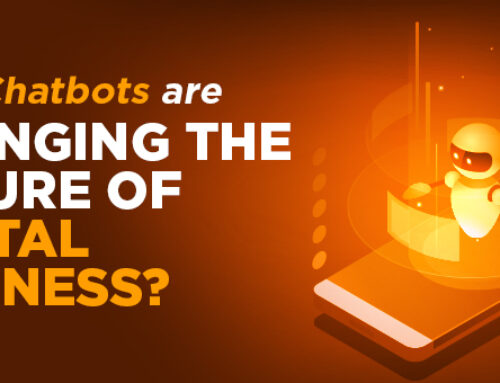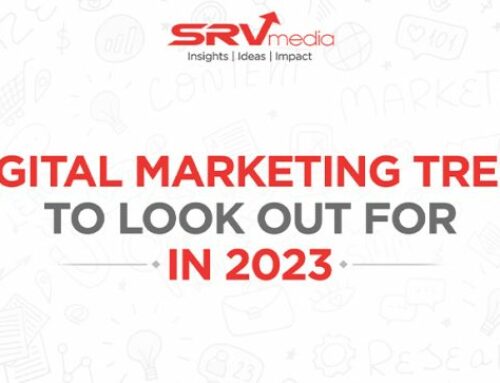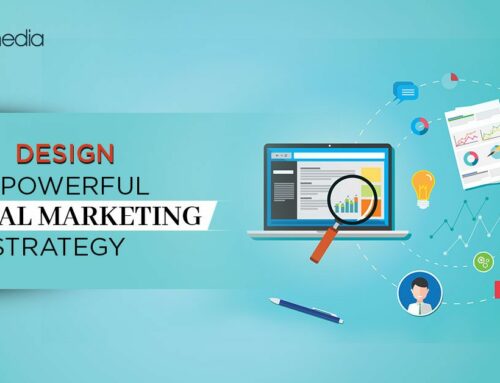The Impact of IT Product Development on Digital Marketing

The digital era is in bloom. Technology is rapidly evolving, continuously throwing new advancements at us. Innovative IT products consistently pop up in different spheres, thus, driving progress and calling for changes. Digital marketing is one of the aspects directly impacted by emerging tech.
Digital marketing refers to promoting and advertising products, services, or brands using digital channels and technologies. It encompasses various strategies and tactics aimed at reaching a target audience through online platforms, such as websites, search engines, social media, email, mobile apps, and other digital mediums.
So, it’s no wonder digital advertising depends on tech and is influenced by IT developments. In this article, we’ll reveal the role of technology in digital marketing and how promotional strategies and campaigns can benefit from emerging IT products.
The Importance of Technology in Digital Marketing
Digital marketing relies on the vast reach and accessibility of the internet to deliver targeted messages, generate leads, drive website traffic, and achieve business goals. It allows businesses to hit a global audience, target specific demographics, track campaign performance in a real-time format, and refine strategies based on data insights. The online practice has become an essential component of modern marketing, enabling organizations to connect with customers, build brand awareness, and drive revenue in a highly competitive digital environment.
Given the dependence on digital tools and internet-based approaches, technology plays a crucial role in web marketing. It transforms the way businesses promote their products and services, reach their target audience, and analyze the effectiveness of their advertising efforts. Technology ensures
- Enhanced communication through diverse digital channels
- Targeted advertising thanks to detailed and accurate analysis of vast data blocks
- Automation of repetitive tasks to increase marketing performance and reduce human error
- Diligent data analytics for well-thought data-driven decisions
- Efficient customer relationship management to improve customer experience and promote customer loyalty and many more
IT Product Development as an Innovation Driver
In the realm of digital marketing, IT developments both drive innovation and respond to the need for transformations to enable business growth and catch up with emerging trends. To better understand the importance of IT product development for web advertising, here is how promotion strategies will benefit from those tech advancements.
Creation of Advanced Marketing Tools
IT developers create cutting-edge software applications, platforms, and tools specifically tailored to the needs of digital marketers. Marketing automation software, content management systems, analytics platforms, customer relationship management systems, and social media management tools are to name a few. By continuously improving and innovating these products, IT teams enable marketers to stay ahead of the curve and capitalize on emerging trends and technologies.
Implementation of Emerging Technologies
IT specialists continuously explore and integrate emerging technologies into digital marketing strategies. For instance, artificial intelligence (AI), machine learning, virtual reality (VR), augmented reality (AR), and chatbots are currently leveraged to enhance customer experiences, deliver personalized content, automate processes, and gain competitive advantages. By embracing those high-end technologies, marketers get a chance to find and test new avenues for customer engagement and business growth.
Seamless Data Integration and Analysis
IT product development focuses on building systems that enable efficient analysis of data from various sources and further seamless integration of its results into promotional processes. This will help marketers gain a comprehensive view of customer behavior and preferences to deliver personalized and targeted marketing campaigns. IT teams play a vital role in setting up data infrastructure, data warehouses, and analytics tools that empower marketers to extract actionable insights and make data-based decisions.
Continuous Improvement and Adaptation
Digital marketing is a dynamic field, with constant advancements and changes in technology, consumer behavior patterns, and market trends. IT teams are responsible for regularly improving existing products and their adaptation to evolving needs. By staying abreast of emerging technologies and market demands, developers facilitate innovation and ensure that marketers have the tools and capabilities necessary to navigate the transforming digital landscape successfully.
Using IT Products for Enhancing Digital Marketing Strategies

While technology offers innovation and provides opportunities for improvement, IT products offer practical solutions for technology implementation in individual business scenarios and situations. In other words, they are custom solutions meeting specific business needs to get the most out of technology.
IT products can enhance digital marketing strategies in many different ways. Let’s consider the most common of them to demonstrate how to reap the benefits of technological developments to increase the efficiency of advertising efforts.
Improved Targeting and Personalization
Companies leverage customized IT products to create targeted marketing campaigns and deploy personalization strategies by
- Utilizing IT products for data collection and analysis: Customer relationship management (CRM) systems, web analytics tools, and data management platforms (DMPs) are vital for collecting and organizing customer data. These tools enable businesses to gather valuable client information and trace consumer interactions with their online platforms. This way, businesses gain insights into customer trends, purchasing patterns, and engagement metrics.
- Using customer insights for targeted campaigns: With access to detailed customer data, businesses can create targeted marketing campaigns that are tailored to specific audience segments. IT products allow marketers to segment their customer base based on factors such as demographics, interests, previous interactions, and purchase history. By analyzing customer insights, marketers identify high-value customer groups and develop messages that resonate with each group. Targeted campaigns increase the likelihood of reaching the right audience with relevant content, resulting in higher engagement and conversion rates.
- Personalization through IT developments: Marketing experience personalization involves delivering customized content, product recommendations, and offers based on individual consumer preferences and behaviors. IT products like customer data platforms (CDPs), marketing automation tools, and content management systems (CMS) facilitate the implementation of personalization strategies. Through IT product development, businesses can create dynamic websites, email campaigns, and mobile apps that adapt to each user’s preferences and provide an individualized experience. This helps build stronger customer relationships, enhances client satisfaction, and increases the likelihood of repeat purchases.
Promoting Customer Engagement
To boost and maintain customer engagement, digital marketing utilizes custom IT products for
- Interactive marketing tools: Custom software development plays a crucial role in enabling companies to create and deploy interactive marketing tools such as social media platforms, chatbots, interactive websites, mobile apps, and virtual reality (VR) experiences used for interactive marketing. These tools allow companies to engage and bond with their clients in real time, fostering active two-way communication. Customer involvement is encouraged via participating in contests, polls, surveys, and sharing user-generated content;
- Customer feedback and reviews: IT products provide channels for customers to share their feedback, opinions, and reviews about brands. By leveraging these products, businesses gain valuable information about consumer preferences, satisfaction levels, and areas for improvement. Marketers are enabled to actively monitor and respond to customer feedback, nurture a sense of trust, transparency, and customer-centricity;
- Improving customer experiences across various digital touchpoints: User interface (UI) and user experience (UX) design principles are incorporated into IT product development to create intuitive and seamless customer journeys. Personalization, ease of navigation, fast loading times, and streamlined checkout processes are key elements of development processes that enhance the customer experience to leave a lasting impression and increase satisfaction and loyalty.
Streamlining Marketing Operations
To increase the efficiency of marketing operations and streamline ongoing promotional processes, IT products could be used for
- Task automation: Email marketing automation, social media scheduling, lead nurturing, and campaign tracking are the prime processes that can be automated with IT products, not to mention workflow management, lead scoring, and triggered campaigns, enabling businesses to deliver timely and personalized messages to their audience. Through automation, businesses can increase productivity and shift their focus to strategic activities. For companies looking to leverage the benefits of task automation, nearshore software development in Latin America presents a compelling option;
- Campaign management: Project management tools, collaboration platforms, and campaign planning software will help in setting campaign goals, creating timelines, allocating resources, and monitoring progress. Such IT products provide features like task assignment, real-time collaboration, and performance tracking, ensuring seamless coordination among team members. Efficient management will ensure that marketing initiatives are executed smoothly, deadlines are met, and resources are utilized optimally.
Adapting to Changing Consumer Behavior
The widespread adoption of smartphones, internet connectivity, and social media platforms has transformed how consumers interact, research, and make purchasing decisions. Consumer behavior has shifted towards online shopping, digital content consumption, and reliance on peer reviews and recommendations facilitated by IT products.
Thus, to catch up with changes in consumer behavior and attract digital customers, companies should embrace appropriate IT products such as digital advertising platforms, social media marketing tools, influencer platforms, mobile apps, etc.
To add more, IT product development allows for customization, personalization, and seamless user experiences, aligning with the evolving expectations and preferences of digital consumers. Hence, businesses that adapt their IT products to cater to consumer needs can gain a competitive advantage, build stronger brand-consumer relationships, and drive customer loyalty.
Future Perspective of IT Product Development and Digital Marketing
With multiple things already driven by IT products and solutions in digital marketing, there is still a lot to come.
IT product development will continue to be shaped by advancements in technology, such as artificial intelligence, machine learning, the Internet of Things, augmented reality, and virtual reality. These technologies will open new opportunities for digital marketing strategies aimed at getting customers interested, solidifying customer relationships, and boosting consumer involvement rather than merely generating revenue.
Businesses capable of embracing emerging trends and leveraging IT developments effectively will be well-positioned to adapt to changing consumer behaviors, stay ahead of the competition, and deliver exceptional digital experiences to their clients.












